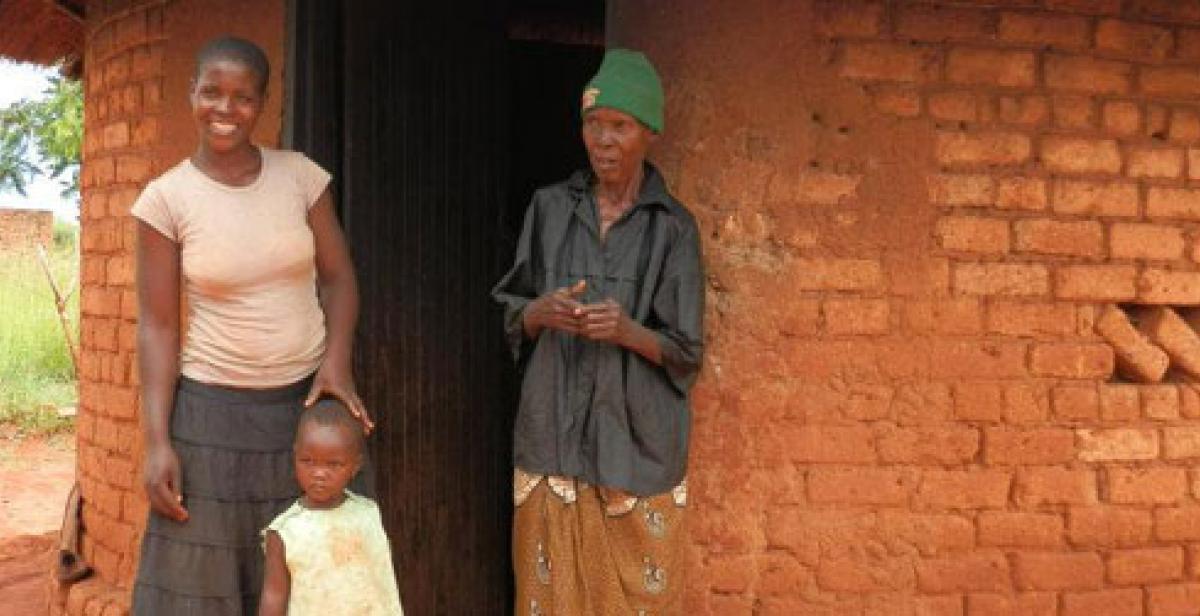The streets of Harare
I have only been here for a few days but Zimbabwe has made a huge impression on me. People carry smiles with them on their way to work and take the time to say hello to strangers as they pass. The cars sweep through the streets in an orderly fashion and although there is an element of hustle and bustle, which you expect in a capital city, Harare has a calm disposition, a charm to it which is immediately settling. The city is much quieter than I imagined. Trees line almost every street, which meander across wide avenues and stretch sideways to form tunnels separating the sun, forming blocks of light.
The farms of Wedza
We set off out of the city to the farms of Wedza; a place where maize plants line rust-red mud paths and the purple-infused Irish potato plants are dotted amongst the fields, and small children dressed in red uniforms walk down long dirt tracks to school.
We were soon greeted by our partner organisation Environment Africa (EA). Gwande from EA told us about the success of the programmes. Together Progressio and EA have been working with the people of the community helping them to bring positive change to their lives. Gwande said, “In this area there’s lots of rain and lots of underground water storage so the people drive sustainable livelihoods from that water, and at EA we’re trying to show them the best practices.”
Farm schools
There are farm schools in the area which means that anybody in the community, even those without access to ox-drawn draft power, can learn modern techniques of conservation farming. “We are working with 170 farmers in the district, and we hope to reach 900 families by the end of 2014,” Gwande said.
The schools are teaching people about the importance of taking care of the land and helping them to grow more varieties of produce such as: leafy vegetable, potatoes, tomatoes and maize to sell at local markets. The community now have more produce to feed to their families and have a more nutritious diet.

Agnes Garutsa (82, pictured above) told me: "We have been helped by EA a lot. We go to field days which are very helpful and we learn about seeds and we watch people grow crops on their farms. These food schools help everyone increase production so there is more produce in the area."
Bee-keeping
Gwande also talked about the success of the beekeeping workshops, which are teaching women to look after the forests when collecting honey; using modern methods which do not de-bark the trees. The workshops are also helping women to market their honey in clean containers so they can distribute the pots to other parts of Zimbabwe.
Gwande said the people of Wedza can now “take on conservation actively” and can “pass on best practices to others in the community, promoting organic production”.
Because of the success of the programmes the community are now working with Progressio to extend the catchment area, crossing T’s and dotting I’s on paperwork which will enable them to sell produce further afield in Zimbabwe and to other regions of Southern Africa. Gwande said, “We have formed district groups of farmers that can provide honey for sale all year round.”
Mrs Jasmine Chakoma is a beekeeper in Chigondo. She said because of the work of EA and Progressio, “We are now able to do beekeeping, and sell the honey and take more money. We have learned new farming practices like using leaf-mould for fertiliser. Now we do not have to take all the money from our pockets to spend on fertiliser.”
It was amazing to hear that the projects were so welcomed by the community and captivating to stand in fields which are central to the livelihoods of so many people.
Pamela Jackson is Progressio's Fundraising Executive. Pamela also took the pictures! Photo at top: Agnes Garutsa (right) with her grand-daughter-in-law, Jane Mudiiwa (age 20) and Jane's daughter, Michelle Garutsa (age 2).



